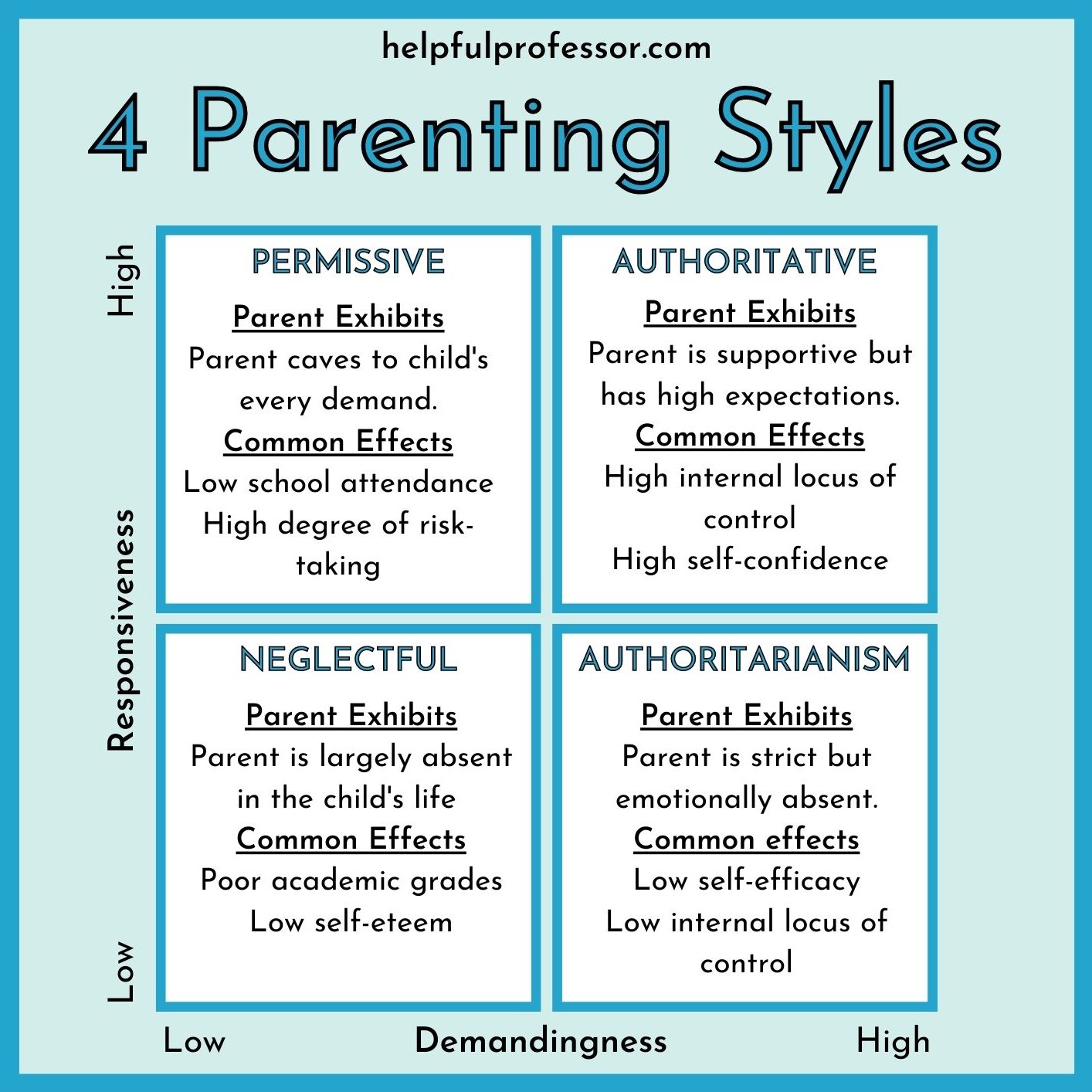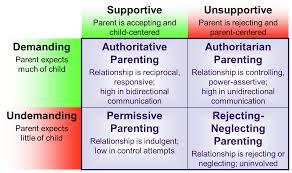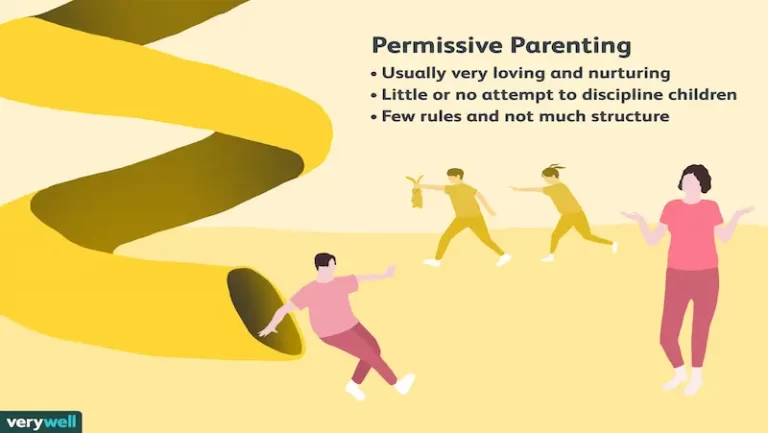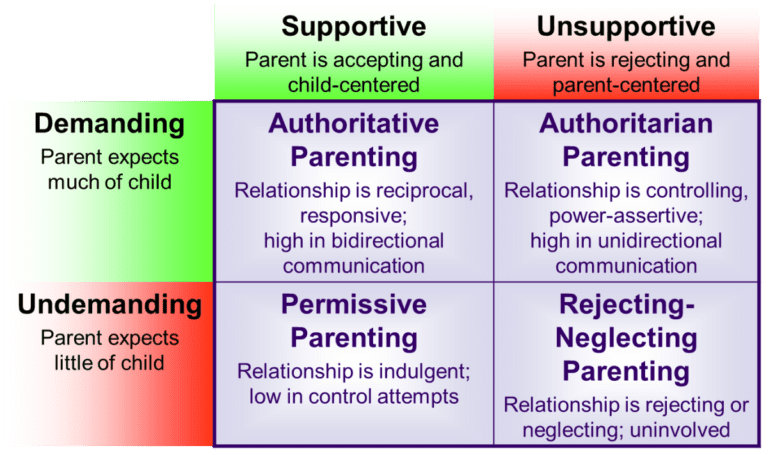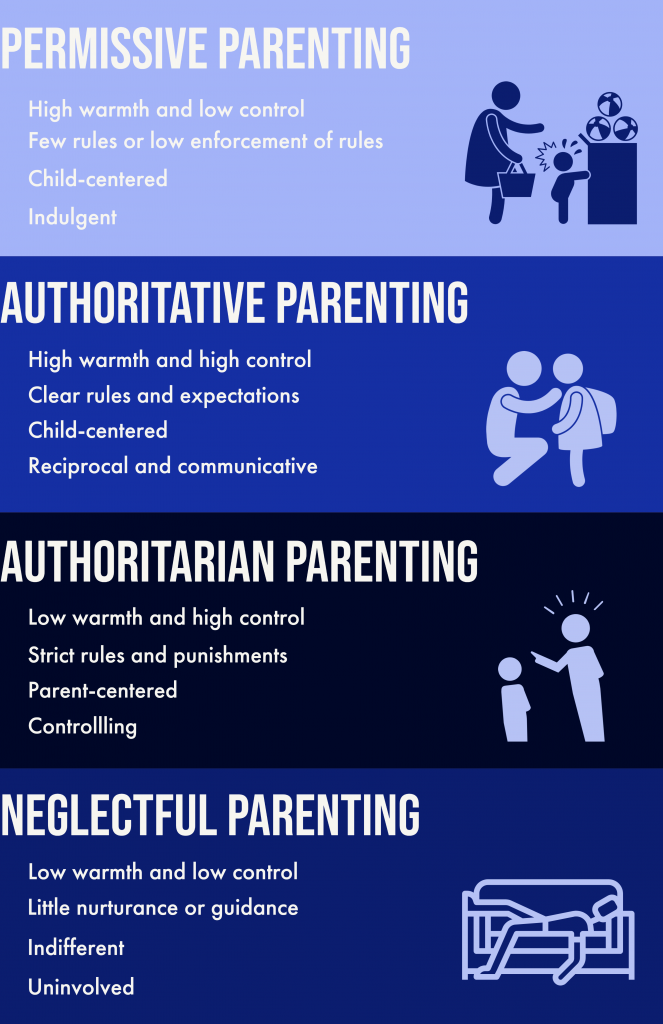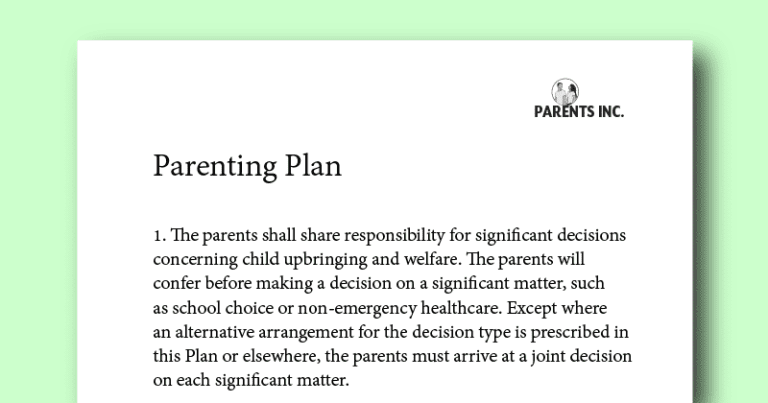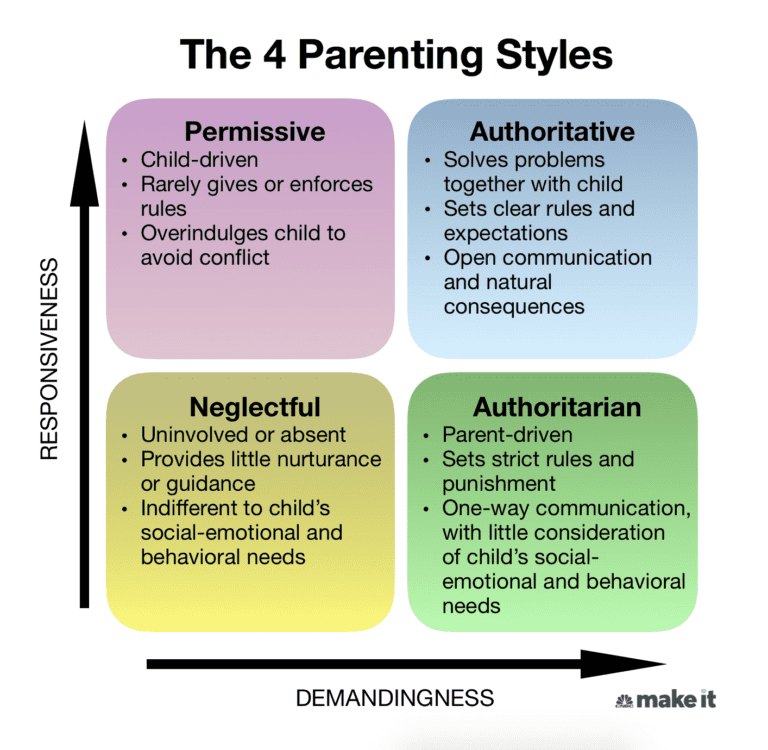The Long-Term Effects of Permissive Parenting
Originally posted on 11/07/2023 @ 14:11
Introduction
Definition of permissive parenting
Permissive parenting is a style of parenting characterized by a lack of rules, discipline, and structure. Parents who adopt this approach tend to be lenient and indulgent, allowing their children to have a high degree of freedom and autonomy. They often avoid setting limits or enforcing consequences for their children’s behavior, leading to a permissive and permissive environment. As a result, children raised in permissive parenting households may struggle with self-control, have difficulty following rules, and exhibit impulsive and entitled behavior. The long-term effects of permissive parenting can have a significant impact on a child’s development and well-being.
Overview of the long-term effects
Permissive parenting, characterized by a lack of rules, discipline, and structure, can have significant long-term effects on children. One of the main consequences is the development of poor self-control and impulse regulation skills. Without clear boundaries and consistent consequences for their actions, children raised in permissive households may struggle to manage their emotions and make responsible decisions as adults. Additionally, these individuals may have difficulty establishing healthy relationships, as they may struggle with setting boundaries and asserting their needs. Furthermore, permissive parenting can contribute to a sense of entitlement and a lack of resilience, as children may not learn how to cope with failure or setbacks. Overall, the long-term effects of permissive parenting highlight the importance of providing children with structure, guidance, and appropriate boundaries to support their emotional and social development.
Importance of studying the long-term effects
The study of the long-term effects of permissive parenting is of great importance. Understanding how permissive parenting practices impact children as they grow and develop can provide valuable insights into the potential consequences of this parenting style. By examining the long-term effects, researchers can identify patterns and trends that may help parents make informed decisions about their own parenting approach. Additionally, studying the long-term effects can contribute to the development of effective interventions and strategies to support children who have experienced permissive parenting. Overall, investigating the long-term effects of permissive parenting is crucial for promoting healthy child development and improving parenting practices.
Emotional Development
Lack of self-discipline
Lack of self-discipline is one of the significant long-term effects of permissive parenting. When parents adopt a permissive approach, they often fail to set clear boundaries and enforce consistent rules. As a result, children grow up without a strong sense of self-discipline, which can hinder their ability to regulate their behavior and make responsible decisions. Without the necessary self-discipline, individuals may struggle with time management, goal-setting, and impulse control, leading to difficulties in various aspects of life, including academics, relationships, and career success. It is crucial for parents to strike a balance between nurturing and setting limits to promote the development of self-discipline in their children.
Low self-esteem
Low self-esteem is one of the significant long-term effects of permissive parenting. When parents adopt a permissive approach, they tend to be overly lenient and indulgent, often neglecting to set clear boundaries and expectations for their children. As a result, children raised in permissive households may struggle with developing a strong sense of self-worth and confidence. Without the guidance and structure provided by authoritative parenting, these children may have difficulty navigating challenges and setbacks, leading to feelings of inadequacy and low self-esteem. Additionally, the lack of consistent discipline and accountability can hinder their ability to develop essential life skills and coping mechanisms. It is crucial for parents to strike a balance between nurturing and setting appropriate limits to promote healthy self-esteem in their children.
Difficulty forming healthy relationships
Permissive parenting, characterized by a lack of boundaries and discipline, can have long-term effects on a child’s ability to form healthy relationships. When children grow up in an environment where their every want and need is catered to without any expectations or consequences, they may struggle to understand the importance of compromise, empathy, and respect in relationships. This can lead to difficulties in establishing and maintaining healthy connections with others, as they may have difficulty setting boundaries, communicating effectively, and understanding the needs and perspectives of their partners or friends. Additionally, the lack of structure and guidance in permissive parenting can result in a sense of entitlement and self-centeredness, making it challenging for individuals to prioritize the needs of others and engage in mutually beneficial relationships. It is crucial for parents to strike a balance between nurturing and setting appropriate limits to ensure their children develop the necessary skills for forming healthy relationships in the long run.
Academic Performance
Lack of motivation
Lack of motivation is one of the significant long-term effects of permissive parenting. When children are raised in an environment where rules and boundaries are lacking, they may struggle to develop a sense of drive and ambition. Without clear expectations and consequences, they may lack the motivation to set goals, work hard, and persevere in the face of challenges. This can hinder their academic and career success, as well as their overall personal growth. Additionally, a lack of motivation can lead to a lack of discipline and self-control, making it difficult for individuals to make responsible choices and prioritize their responsibilities. Ultimately, the long-term impact of permissive parenting on motivation can have far-reaching consequences for a child’s future development and achievements.
Poor time management skills
Poor time management skills are one of the long-term effects of permissive parenting. When children are raised in an environment where rules and boundaries are not consistently enforced, they may struggle with managing their time effectively. Without the structure and discipline provided by authoritative parenting, these children may find it difficult to prioritize tasks, meet deadlines, and manage their schedules. As a result, they may experience difficulties in school, work, and other areas of life where time management is crucial. It is important for parents to recognize the impact of permissive parenting on their child’s time management skills and provide the necessary guidance and support to help them develop this important life skill.
Underachievement in school
Underachievement in school is one of the significant long-term effects of permissive parenting. When parents adopt a permissive parenting style, they tend to be lenient and indulgent, allowing their children to have minimal rules and boundaries. As a result, children may lack the necessary discipline and structure needed to excel academically. They may struggle with time management, organization, and self-discipline, leading to lower grades and a lack of motivation. Additionally, permissive parents often prioritize their child’s immediate happiness over long-term success, which can hinder their educational development. Overall, underachievement in school is a common consequence of permissive parenting, highlighting the importance of setting appropriate boundaries and expectations for children’s academic success.
Behavioral Issues
Lack of boundaries
Lack of boundaries is a key characteristic of permissive parenting, and it can have significant long-term effects on children. When parents fail to establish clear rules and expectations, children may struggle with self-discipline and have difficulty understanding limits. Without boundaries, children may grow up with a sense of entitlement and have difficulty respecting authority figures. Additionally, the lack of structure and guidance can hinder their ability to develop important life skills, such as problem-solving and decision-making. As a result, these children may face challenges in their relationships, education, and future careers. It is crucial for parents to recognize the importance of setting boundaries and providing structure to ensure the healthy development and well-being of their children.
Rebellious behavior
Rebellious behavior is one of the key long-term effects of permissive parenting. When children are raised in an environment where rules and boundaries are lacking, they often develop a sense of entitlement and a disregard for authority. This can manifest in various forms of rebellious behavior, such as defiance, disobedience, and engaging in risky activities. Without proper guidance and discipline, these behaviors can persist into adolescence and adulthood, leading to negative consequences in relationships, education, and overall well-being.
Aggression and defiance
Aggression and defiance are common behavioral issues observed in children raised in permissive parenting environments. Due to the lack of structure and discipline, these children often struggle with managing their emotions and expressing their frustrations in appropriate ways. As a result, they may resort to aggressive behaviors such as hitting, yelling, or throwing tantrums when they don’t get their way. Additionally, their defiance towards authority figures is often heightened, as they have not been taught the importance of respecting rules and boundaries. These long-term effects of permissive parenting can have significant implications on a child’s social and emotional development, potentially leading to difficulties in forming healthy relationships and adapting to societal expectations.
Social Skills
Difficulty following rules
Permissive parenting, characterized by a lack of structure and discipline, can have long-term effects on a child’s ability to follow rules. When children grow up in an environment where there are minimal expectations and consequences for their actions, they may struggle to understand the importance of rules and boundaries. This can lead to difficulties in school, relationships, and even in the workplace later in life. Without the guidance and structure provided by authoritative parenting, children may have a hard time developing self-discipline and self-control. It is essential for parents to strike a balance between being nurturing and setting clear expectations to help their children navigate the complexities of following rules and regulations.
Inability to handle criticism
Inability to handle criticism is one of the significant long-term effects of permissive parenting. Children who grow up in permissive households often struggle with accepting and dealing with criticism in a healthy manner. Since permissive parents tend to avoid setting boundaries and enforcing rules, their children may develop a sense of entitlement and an inability to accept constructive feedback. As a result, these individuals may become defensive, resistant to change, and struggle with personal growth and development. The lack of constructive criticism in their upbringing can hinder their ability to handle feedback in various aspects of life, including relationships, work, and personal growth.
Lack of empathy
Lack of empathy is one of the significant long-term effects of permissive parenting. When parents adopt a permissive approach, they tend to prioritize their child’s immediate happiness and desires over teaching them empathy and understanding for others. As a result, children raised in permissive households may struggle to develop the ability to recognize and respond to the emotions and needs of others. This lack of empathy can have far-reaching consequences, impacting their relationships, social interactions, and overall emotional well-being as they navigate through life.
Parent-Child Relationship
Lack of respect
Lack of respect is one of the significant long-term effects of permissive parenting. When parents fail to set clear boundaries and enforce rules, children may grow up without a proper understanding of respect for authority figures, peers, and themselves. Without the guidance and structure provided by authoritative parenting, children may struggle to develop essential social skills and may have difficulty navigating relationships and professional settings later in life. Additionally, the lack of respect can lead to a sense of entitlement and disregard for others’ feelings and needs. It is crucial for parents to strike a balance between nurturing and setting boundaries to ensure their children grow up with a healthy understanding of respect and empathy.
Communication problems
Communication problems can be one of the long-term effects of permissive parenting. When parents adopt a permissive approach, they tend to avoid setting clear boundaries and rules for their children. As a result, children may struggle with understanding the importance of effective communication. They may have difficulty expressing their needs, emotions, and opinions in a respectful and assertive manner. This can lead to misunderstandings, conflicts, and difficulties in building healthy relationships later in life. It is crucial for parents to recognize the impact of permissive parenting on communication skills and actively work towards fostering open and effective communication within the family.
Strained relationship in adulthood
In the context of permissive parenting, a strained relationship in adulthood is a common long-term effect. When parents adopt a permissive approach to parenting, they often prioritize their child’s immediate desires and wants over setting boundaries and enforcing rules. This lack of structure and discipline can lead to a strained relationship between parent and child as they grow older. Without clear boundaries and expectations, children may struggle to develop a sense of responsibility and accountability. As a result, they may have difficulty navigating adult relationships and may exhibit behaviors such as entitlement, lack of empathy, and an inability to handle conflict effectively. The strain in the parent-child relationship can manifest in various ways, including frequent arguments, a lack of trust, and a sense of resentment. It is important for parents to recognize the potential long-term consequences of permissive parenting and strive to find a balance between nurturing and setting appropriate boundaries to foster healthy relationships in adulthood.

